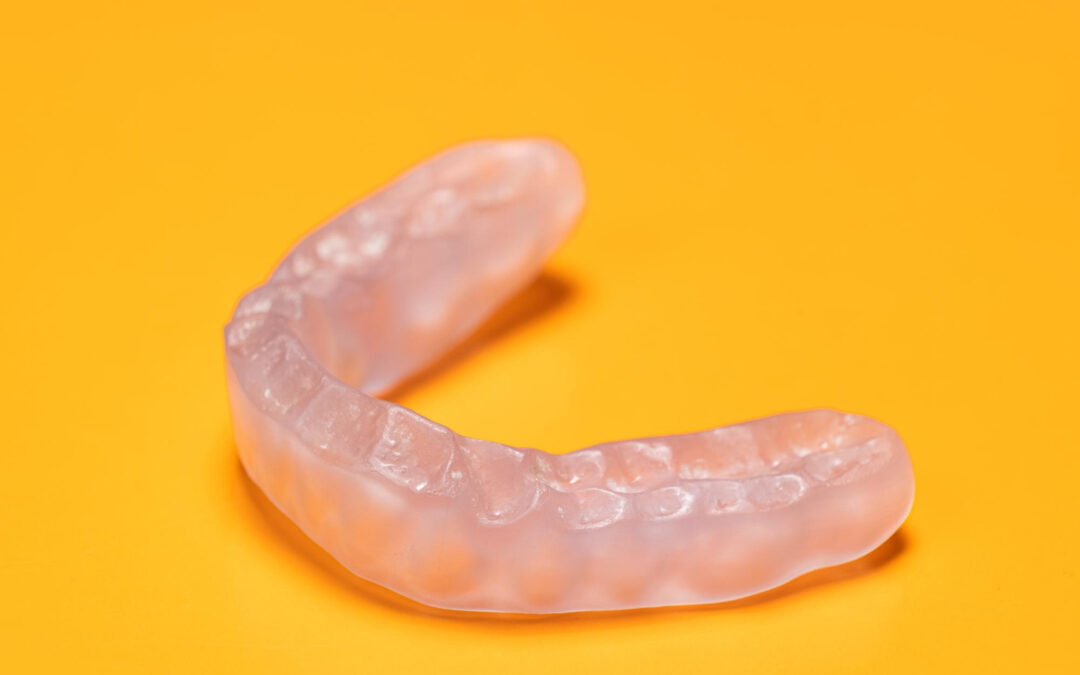Keeping athletes safe is a top priority for coaches, parents, and the athletes themselves. One of the biggest concerns in sports, particularly contact sports, is the risk of concussions. These are not only painful but can have serious long-term effects on health. While many focus on helmets as the first line of defense, mouthguards play a significant role in protecting against concussions. They’re not just about safeguarding teeth; mouthguards can also help cushion the impact to the jaw and, consequently, the brain.
Mouthguards are an essential piece of equipment for athletes of all ages. Whether you’re involved in high-contact sports like football, hockey, or basketball, understanding how these protective devices work can be the difference between staying safe and facing a serious injury. We’ll take a closer look at how mouthguards help prevent concussions, what types are available, and why selecting the right mouthguard can make all the difference in keeping athletes safe and sound on the field.
Understanding Concussions
A concussion is a type of brain injury caused by a bump, blow, or jolt to the head. This injury can also occur from a hit to the body that causes the head and brain to move rapidly back and forth. Such sudden movements can lead to the brain bouncing or twisting in the skull, creating chemical changes in the brain and sometimes stretching and damaging brain cells. While not every knock will lead to a concussion, understanding the common causes can help in knowing when to take extra precautionary measures.
Concussions are common in sports like football, soccer, and martial arts, where contact is frequent. Activities involving high speeds, sudden stops, or falls, such as cycling or skating, can also heighten the risk. Recognizing the impacts that lead to concussions is critical for prevention. Headaches, confusion, dizziness, and nausea are some early signs to watch for following a possible impact.
The long-term impacts of head injuries, if not properly managed, can include memory problems, mood changes, and even more severe neurological conditions. It’s essential to take all necessary measures to reduce the chances of such injuries. This is where mouthguards come into play as they add an additional layer of protection. Understanding the role these protective devices play can help in making informed decisions about athlete safety.
The Role of Mouthguards in Preventing Concussions
Mouthguards are often seen as a protective shield for teeth, but their benefits extend beyond just guarding against dental injuries. They also play a crucial role in concussion prevention. These devices serve to absorb and disperse the force of impacts that might otherwise directly affect the head and jaw, reducing the likelihood of a concussion.
Here’s how they work:
- Shock Absorption: Mouthguards cushion the impact, which helps to prevent the force from transmitting directly to the brain.
- Jaw Stabilization: By keeping the jaw securely in place, mouthguards reduce the risk of the lower jaw slamming into the upper jaw and causing a concussive blow.
- Minimizing Soft Tissue Injury: These devices can help protect the soft tissues of the mouth, preventing cuts and bruises that can occur during contact sports.
The connection between mouthguards and reducing concussion risks is clear. By mitigating the force experienced during impacts, they provide vital protection for both dental and brain health. Whether an athlete is engaged in a high-impact sport or simply enjoys a recreational activity where falls or collisions might occur, utilizing a mouthguard is a wise choice for added safety.
Types of Mouthguards
When it comes to mouthguards, one size definitely doesn’t fit all. They come in several types, each offering different levels of comfort and protection. Understanding the differences can help you make an informed choice.
1. Stock Mouthguards: These are the most basic type of mouthguards and are often available at most sporting goods stores. They come preformed and ready to wear. However, their fit is not customizable, which can lead to discomfort and less-than-ideal protection. The upside is they are usually the most affordable option.
2. Boil-and-Bite Mouthguards: These are a middle-ground option where customization meets affordability. Made from a thermoplastic material, boil-and-bite guards soften when placed in hot water. After cooling down, they can be adjusted to fit the exact shape of your mouth. This type allows for a much better fit than stock mouthguards, making them a popular choice for many athletes.
3. Custom-Fitted Mouthguards: These provide the best fit and protection. Custom-fitted mouthguards are made by dental professionals, ensuring that the guard is perfectly molded to the unique contours of your mouth. While they are more expensive than other options, the level of comfort and protection they provide is unmatched, making them especially worth considering for athletes engaged in high-contact sports.
Choosing the Right Mouthguard
Selecting the right mouthguard is key to maximizing safety and comfort. Here are some factors you should consider to help you make the right choice:
- Fit and Comfort: A mouthguard that fits well will be more comfortable and effective. Check that it fits snugly against your upper teeth without being loose or requiring you to bite or clench to hold it in place.
- Protection Level: Consider the type of sport and the level of contact involved. The higher the need for protection, the more you should lean towards quality options like custom-fitted guards.
- Breathability: A good mouthguard should not restrict your breathing or speech too much. Trying out the fit before committing, if possible, can be beneficial.
If you’re in Lake Stevens, WA, finding a reliable dental professional can be an integral step in choosing and maintaining an effective mouthguard. Regular checks are important to ensure your mouthguard stays in good condition and continues to fit well as you grow or if your dental structure changes.
Summing Up Protection
Ultimately, whether your passion is on the football field or in the boxing ring, protecting your head is a top priority. Mouthguards offer a convenient and effective way to help lower the risk of concussions by absorbing impacts, securing the jaw, and preventing dental injuries. They are a small investment with potentially significant benefits for long-term health.
The right mouthguard can go a long way in providing peace of mind and safety for athletes. Taking the time to choose wisely ensures athletes are better protected, allowing them to play their preferred sports with reduced risk of injury. For those seeking more guidance or a custom solution tailored to individual needs, a consultation with a dental professional is a valuable next step.
Protect your athletic future by choosing the right mouth protector. At New Life Dental Arts, we provide expert solutions to help keep you safe during sports. Our mouthguards and concussions options offer enhanced protection against impact, reducing the risk of injury. Discover how our team can support your safety and confidence on the field. Don’t wait—ensure superior protection today!

